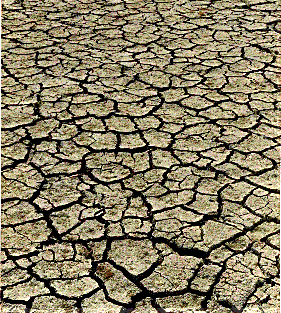PCP is about Philosophy. But what is philosophy? Philosophy intends to answer the eternal questions: Who am I? Where do I come from? Where am I going to? What is knowledge? What is truth? What are good and evil? What is the meaning of life?
But there is a huge literature on philosophy. What is new here?
Every time has its own approach to these eternal philosophical questions, deriving from its knowledge and technology. We hold that in our time, the age of information, it is systems science and cybernetics, as the general sciences of organization and communication, that can provide the basis for contemporary philosophy. Therefore, this philosophical system is derived from, and further develops, the basic principles of cybernetics.
 Moreover, we start from the thesis that systems at all levels have been constructed by evolution, which we see as a continuing process of self-organization, based on variation and natural selection of the "fittest" configuration. Therefore, our specific approach may be called evolutionary cybernetics. Evolution continuously creates complexity and makes systems more adaptive by giving them better control over their environments. We consider the emergence of a new level of control as the quantum of evolution, and call it a "metasystem transition".
Moreover, we start from the thesis that systems at all levels have been constructed by evolution, which we see as a continuing process of self-organization, based on variation and natural selection of the "fittest" configuration. Therefore, our specific approach may be called evolutionary cybernetics. Evolution continuously creates complexity and makes systems more adaptive by giving them better control over their environments. We consider the emergence of a new level of control as the quantum of evolution, and call it a "metasystem transition".
As cybernetic theory informs our philosophy, so cybernetic technology lets us do things that philosophers of other times could only dream of. Using computer technology, we develop a large philosophical text from many nodes which are linked together with different relationships: a semantic network. Readers can navigate among the many concepts, guided by their individual understanding and interests. Disparate material can be integrated together while being written and read by collaborators from all around the world, undergoing variation and selection. To support this self-organization, we have developed special algorithms, which help the network to adapt to its users. Thus, we apply theories about the evolution of cybernetic systems to the practical development of this very system of philosophy.
We hold that PCP is more than an interesting experiment, and that there is an acute need for an approach similar to PCP. The on-going explosion and fragmentation of knowledge demands a renewed effort at integration. This has always been the dream of the systems theorists; all they lacked was the appropriate technology to tackle the complexity of the task. Thus, PCP draws its inspiration from many predecessors in intellectual history, who have tried to collaboratively develop complex systems of thought, but complementing their efforts with novel technology.
The project has started in 1989, and its first implementation as a website happened in 1993 (see our history). Since then, the webpages discussing the different components of our philosophy have been regularly expanded and updated. Thus, our conceptual system gradually widens, deepens, and improves. Of course, the task is enormous, and will never be really finished. If you are interested in our Project, we invite you to join our efforts and become a contributor.
For further introductory reading, see the following documents:
- A Short Introduction to the Principia Cybernetica Project (1991 paper)
- Workbook of the 1st Principia Cybernetica Workshop (short papers and abstracts, 1991)
- Principia Cybernetica: an Introduction, a view of PCP by an outsider, Koen Van Damme, with fragments of interviews with C. Joslyn and V. Turchin (1996)
- A Dialogue on Metasystem Transition, V. Turchin's introductory overview of some of the basic concepts of the PCP philosophy (1995) (HTMLversion)
 The Principia Cybernetica Project: Placing the Web at the Center of Man's Quest for Knowledge, by Ben Goertzel, another outsider's view (2000),
The Principia Cybernetica Project: Placing the Web at the Center of Man's Quest for Knowledge, by Ben Goertzel, another outsider's view (2000),
- Foundations and Methodology for an Evolutionary World View: a review of the Principia Cybernetica Project (long paper by F. Heylighen, 2000)

